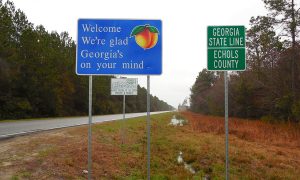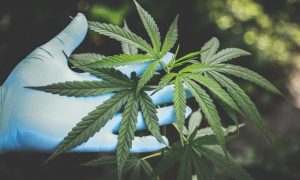Since the passing of the Hemp Farm Bill in 2018, Hemp has become a hot commodity in agriculture, with its uses ranging from rope and textiles to hemp milk and oil, but government agencies are still unsure of how to regulate a derivative of the cannabis plant, CBD. As of 2020, only one CBD based product has been approved by the FDA for “treatment of seizures associated with Lennox-Gastaut syndrome or Dravet syndrome in patients 2 years of age and older.” And under the new regulations, any CBD and/or THC products can’t be marketed or sold as dietary supplements dictated by the FD&C Act, although Hemp- derived products that meet the standard of the FD&C Act and do not contain any CBD or THC can be marketed and sold as dietary supplements.
In November 2019 many major companies producing products that contained CBD were sent warning letters by the FDA for not containing the chemical levels of CBD that they claimed were in their products. The companies that have received warning letters are listed on the FDA’s website for public view.
Dr. Stephen Hahn, the new commissioner of the U.S. Food and Drug Administration, said “We’re not going to be able to say you can’t use these products. It’s a fool’s errand to even approach that,” and continues,“We have to be open to the fact that there might be some value to these products, and certainly Americans think that’s the case. But we want to get them information to make the right decisions.” Dr. Hahn’s predecessor, Dr. Scott Gottleib testified to Congress in February of 2019, “We believe it does have therapeutic value and has been demonstrated [. . .] but I will tell you this is not a straightforward process.
With such a high demand for Hemp and CBD products, the FDA is looking for new ways to regulate and accommodate the Hemp industry into the rest of the agricultural sector. Since Hemp is a strain of the Cannabis sativa plant, it does contain some amounts of THC, but significantly less than that of the Cannabis plant. The DEA wanted more regulation and lab testing through their approved state labs, but people within the industry complained that there was too much of a demand for the selected labs to keep up. Current regulations require that all hemp must be tested 15 days before harvest and there are less than 50 DEA-registered labs in the country, causing a huge bottleneck for this industry. The DEA and the FDA came to an agreement to allow farmers to test at their local laboratories, as long as they meet USDA standards. It will remain standard until the 2021 season, when the DEA will once again require approved state lab testing. This will give the agency a chance to gather more DEA-approved labs to cooperate with and more options for disposal of Hemp waste, some of the biggest issues facing the Hemp industry. As with pretty much all Cannabis and Hemp regulation, more testing is needed to study the short and long term effects of cannabis and its derivatives. Even though derivatives of the cannabis and hemp plants are more widely consumed than ever before, governments are slow to create regulation and testing to keep up with demand or allowing for necessary clinical trials to study the effects.
By Lynn You



























